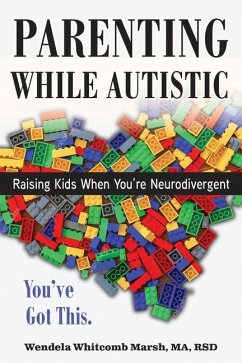Nicht lieferbar

No More Meltdowns
Positive Strategies for Managing and Preventing Out-Of-Control Behavior
It could happen at the grocery store. At a restaurant. At school. At home. Meltdowns are stressful for both child and adult, but Dr. Baker can help! Author of the award-winning Social Skills Picture Book series, Dr. Jed Baker offers parents and teachers strategies for preventing and managing meltdowns. His 20+ years of experience working with children on the autism spectrum, combined with his personal experiences raising his own children, have yielded time-tested strategies, and results! Dr. Baker offers an easy-to-follow, 4-step model that will improve your everyday relationships with the chi...
It could happen at the grocery store. At a restaurant. At school. At home. Meltdowns are stressful for both child and adult, but Dr. Baker can help! Author of the award-winning Social Skills Picture Book series, Dr. Jed Baker offers parents and teachers strategies for preventing and managing meltdowns. His 20+ years of experience working with children on the autism spectrum, combined with his personal experiences raising his own children, have yielded time-tested strategies, and results! Dr. Baker offers an easy-to-follow, 4-step model that will improve your everyday relationships with the children in your life: 1) Managing your own emotions by adjusting your expectations, 2) Learning strategies to calm a meltdown in the moment, 3) Understanding why a meltdown occurs, and 4) Creating plans to prevent future meltdowns.










